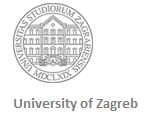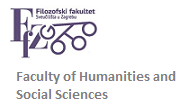Home » 10. semestar – NASTAVNIČKI SMJER – jednopredmetni
Category Archives: 10. semestar – NASTAVNIČKI SMJER – jednopredmetni
Learning English at an Early School Age
Course title: LEARNING ENGLISH AT AN EARLY SCHOOL AGEInstructors: Asst. Prof. Renata Geld, Mihajla Ćavar PortolanECTS credits: 5Semester: IXStatus: electiveEnrollment requirements: noneCourse description: Rationale for early learning of a foreign language; overview of research in the field; child abilities and limitations with respect to acquiring a foreign language at that stage (age 6-10) of linguistic, […]
Learning English at an Early School Age-archive
Course title: LEARNING ENGLISH AT AN EARLY SCHOOL AGEInstructor: Professor Jelena Mihaljević Djigunović, PhD.ECTS credits: 5Semester: IXStatus: electiveEnrollment requirements: noneCourse description: Rationale for early learning of a foreign language; overview of research in the field; child abilities and limitations with respect to acquiring a foreign language at that stage (age 6-10) of linguistic, cognitive, affective […]
Practicum 4
Course title: PRACTICUM 4Instructor: Asst. Prof. Renata GeldECTS credits: 2 creditsStatus: mandatorySemester: XEnrollment requirements: noneCourse description: Practical insights into language development of learners of different ages. Development of teacher rapport. Awareness of teaching impact on learning. Classroom management. Self-observation. Designing teaching activities for different ages and proficiency levels of learners. Analyzing and adapting teaching materials. […]



